While many small businesses won’t handle the volume of information that larger corporations would, proper data protection habits will go a long way in guarding the critical information that the business will need to keep safe. Implementing these habits early and updating them regularly will also help maintain strong cybersecurity infrastructure and reduce the attack surface for malicious actors as the business grows. Business owners and IT staff should regularly re-examine their data protection tools and ensure they are always following the current best practices because malicious actors will always be waiting for your cybersecurity to weaken.
Controlling Data Access

If a small business has even one employee in addition to the owner, data access controls should be put in place for any sensitive data the business stores. Starting this practice early will ensure that only the right people have access to proprietary information, client details, and sensitive documents that are important to the company. While employees may not maliciously seek this information out, having the proper data access controls can prevent malicious actors from stealing that information if an employee’s account becomes compromised. Implementing this data protection habit early means that your business will keep important data safe from day one and reduce the chances of accidental data misuse.
Endpoint Protection

Often, just having an antivirus software won’t be enough to protect your data and gather critical information when malicious actors target your business. Working with a managed service provider (MSP) to implement a robust endpoint protection service means your data is better protected from viruses by a service that also provides attack details, endpoint isolation, and other security features when something goes wrong. For even better data protection, small businesses should combine their endpoint protection with a next-generation firewall and multifactor authentication for layered data protection that provides the best cybersecurity outcomes.
Data Encryption and Backups

Whenever extremely sensitive data is being stored or transferred, data encryption becomes paramount. When your data has been properly encrypted, it decreases the likelihood that malicious actors can access it, even if they manage to somehow intercept it because only the intended recipient will have the right authentication tools to unencrypt the information. Any information that needs encryption should also have a safe and reliable backup. A strong backup service can help small businesses mitigate ransomware attacks and lower downtime if important data is misplaced or corrupted.
Summary
Strong data protection starts with controlling who has access to the business’ critical information at all times. Once protections and monitoring are in place, securing company endpoints from attack will help ensure only the right people get access to your business’ information Additionally, encrypting any data that needs to be stored or transferred will help lower the risk of data being misused if it does end up somewhere it shouldn’t. Small business must always be vigilant with their data and seek out a local IT consultant when they need help because attackers will try to sell anything they can get their hands on.





